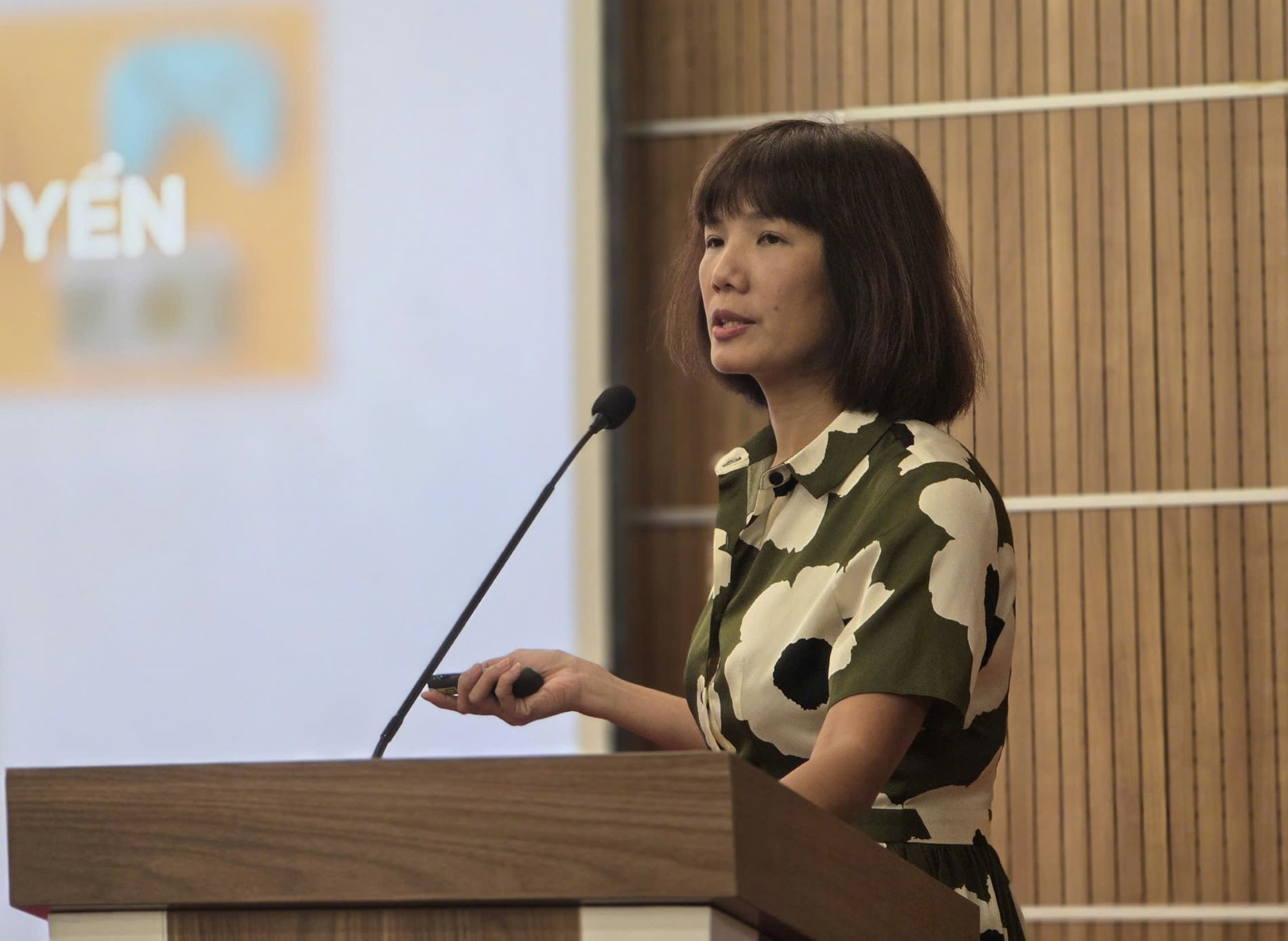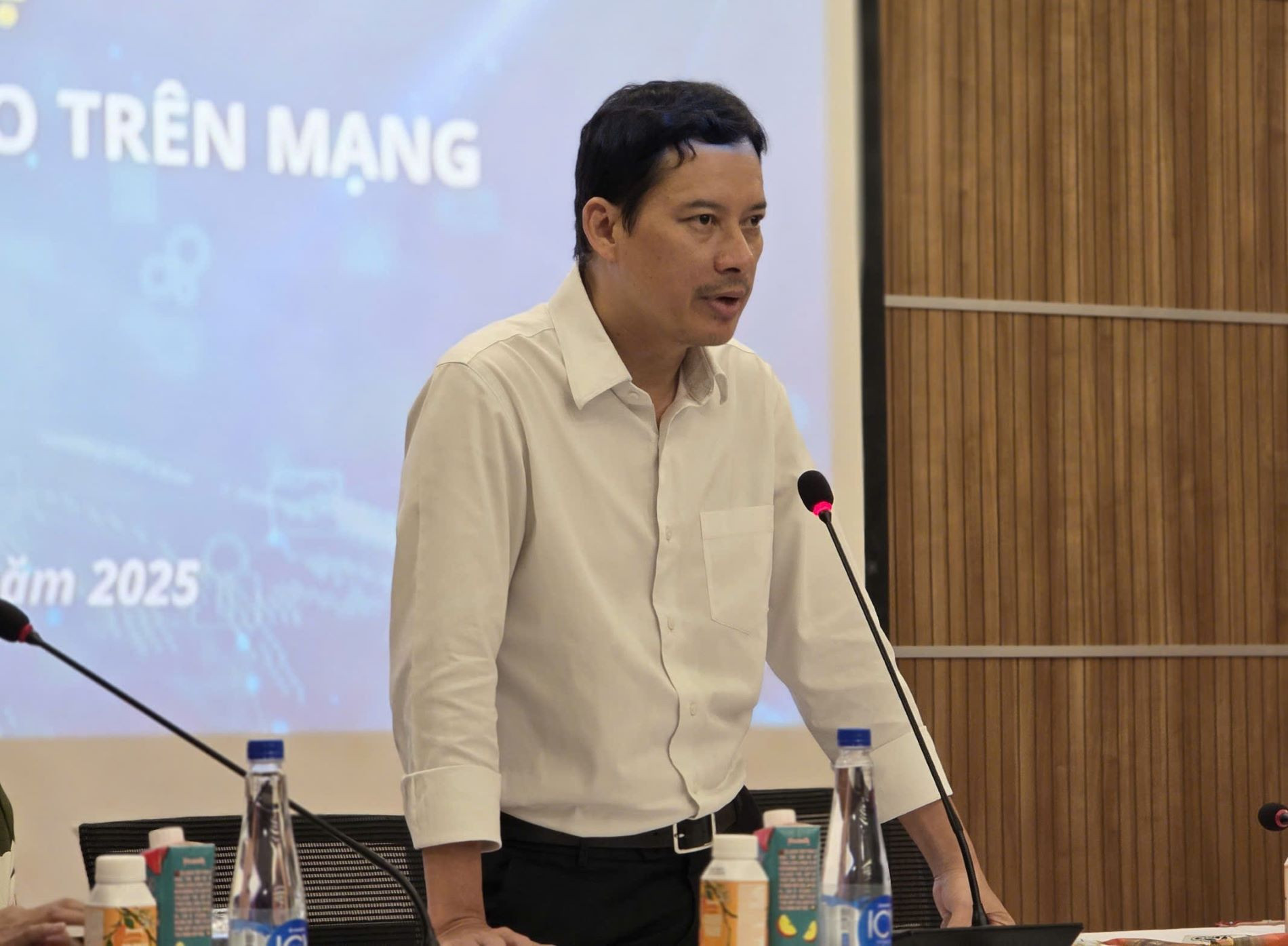The revised Advertising Law will tighten control over online advertising, particularly for influencers and celebrities. Vietnam's Authority of Broadcasting and Electronic Information (ABEI) has already penalized several public figures for false advertising, affirming a stricter approach ahead to foster a clean digital marketing environment.
On July 30, ABEI hosted a national conference on online advertising with the participation of the Advertising Association, digital platforms, brand representatives, and major media agencies. The event focused on enforcing stricter penalties for influencers and celebrities violating advertising regulations on social media, aiming to build a truthful and responsible digital advertising space.
Online advertising boom and the pitfalls of celebrity endorsements

Nguyen Thi Thanh Huyen, Deputy Director of ABEI, speaks at the conference. Photo: CTV
With the rapid growth of the digital economy, online advertising has become an effective marketing tool, offering immense growth opportunities for businesses and content creators.
However, the surge in online advertising has exposed critical shortcomings, especially false or exaggerated claims that mislead consumers about product quality or benefits.
A significant issue is the participation of celebrities and key opinion leaders (KOLs) who promote products or services without verifying the information, directly harming consumers and eroding trust in advertising practices.
Other concerns include ads that breach cultural norms, lack brand safety, or are published anonymously.
In response, the amended Advertising Law, passed by the National Assembly on June 16, 2025, will take effect on January 1, 2026. This marks a major legislative step toward improving advertising governance, particularly online and influencer-based marketing. The law now includes all internet-connected platforms, such as social media, online apps, and digital ecosystems, within the scope of “online advertising.”
At the event, Nguyen Thi Thanh Huyen, Deputy Director of ABEI, noted: “Digital platforms have worked with us to remove non-compliant ads and implement technical solutions to prevent illegal advertising content. We've also instructed e-commerce platforms to strictly monitor influencer-based advertising, especially livestreams, testimonials, and product reviews. The ad content must align with the publicly declared benefits and effectiveness.”
The revised law emphasizes the responsibilities of ad conveyors on social media. In addition to compliance with advertising regulations, they must also follow the Law on Children and other relevant legislation.
All ads must be clearly labeled, possibly using distinct characters to differentiate them from standard content. Celebrities are responsible for verifying the accuracy of the ads they share. Social media platforms must provide tools to identify and disable ads and are accountable for monitoring content that leads users to external websites.
Tightened enforcement for online celebrity violations

In the first half of 2025, ABEI intensified efforts to inspect and detect false advertising and the embedding of ads into harmful or illegal content.
The agency rigorously implemented government directives related to advertisements for pharmaceuticals, counterfeit food, fake milk products, and fraudulent trade practices.
Several official notices were issued to media outlets, social networks, advertising service providers, and brand owners, urging stricter content moderation and tighter control over influencer marketing activities.
ABEI investigated seven celebrities and KOLs for advertising violations, penalized three with fines totaling approximately 215 million VND (around 8,400 USD), and issued warnings to two others.
The agency also mandated a ban on advertising on illegal websites and prohibited cooperation with individuals or online platforms known to violate the law.
Le Quang Tu Do, Director of ABEI, emphasized: “We will implement the new legal framework, continue developing decrees, and strictly sanction violators, especially celebrities who breach advertising laws.”
He urged brands and ad agencies to adopt the “White List” approach - promoting ads only on verified, law-abiding content channels - and to support ABEI in periodically updating these safe lists.
Content creators were encouraged to focus on positive, value-driven content to attract advertising revenue. Only “clean” content will be eligible for monetization, gradually phasing out sensationalist or harmful material.
Do also called for enhanced technical, human, and algorithmic tools to proactively review and remove illegal content; to block ad placements in such content; to disable ads and stop revenue sharing for violative videos or channels; and to tighten monetization requirements to ensure only legally compliant content can earn ad revenue.
ABEI calls on the entire digital advertising ecosystem to unite in building an honest, creative, and accountable environment. Legal compliance is not just a duty but the cornerstone for sustainable development in the digital era.
Thu Uyen